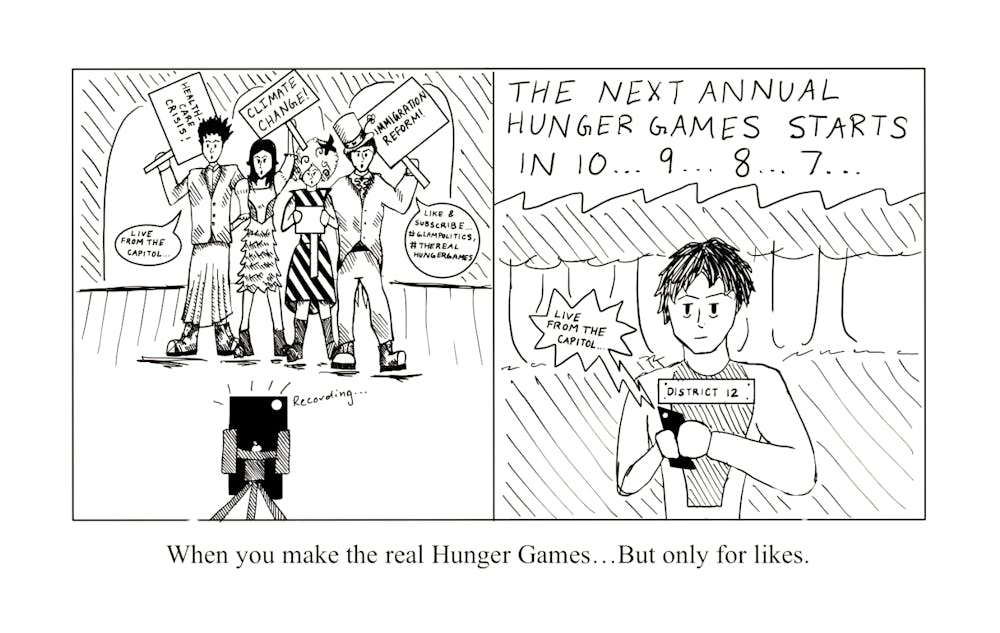Since Trump’s inauguration and his slew of frightening executive orders, I've turned to social media for organizing guidance and community. What have I found? A lot of white upper-middle class teenagers in Katniss Everdeen-esque getups, lip syncing to the “Cabaret” soundtrack and scribbling “deny, defend, depose” on their cash.
It makes sense that people are turning to this sort of dystopian cosplay — it blends escapism with political messaging, making it a comfortable outlet for anxieties in the face of frightening policies. But that’s just the problem: it’s comfortable.
The dystopian novels that people cling to are meant to draw hyperbolic comparisons to highlight real-life corruption, but they are not roadmaps or invitations to glamorize your position in the political web for personal gain. Too much activism starts and ends with drawing obvious parallels, unproductive catastrophizing and pursuit of individualistic glory.
Though many posting these videos are well-meaning, we can do better. It’s time to get offline and get real.
Rooting your activism in fantasy creates a paralyzing dissonance. Resistance in “The Hunger Games” is completely different from the work that needs to be done in the United States. Our duties are generally more tedious and boring, and we are not guaranteed a chiseled blond love interest to do them with us.
Though progress can be exciting, it is not effective to create unrealistic expectations for watershed acts of radicalism to play out as they do in movies. Sometimes — most of the time — resistance looks like small-scale mutual aid and taking care of your community members.
Superimposing fictional dystopias over reality exaggerates our current conditions to seem insurmountable. There is serious cause for concern and rage, but kids are not being randomly selected to kill each other (yet). While we still have some liberties, we need to acknowledge and exploit them instead of further victimizing ourselves into passivity.
A fantastical approach to politics seems like a product of the massive scale of social media communications and its subsequent warping of our perception of organizing. When you’re posting from North Carolina and reaching people in New York and Australia, you can’t tell them to meet you at the town square with a sign in hand. Thus, people feel they have to water down their point so they can mobilize as many people as possible, instead of effectively mobilizing locally.
Then, nothing happens. The TikTok becomes the end and the means.




